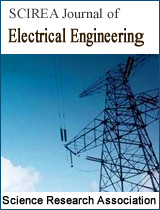Knowledge Reasoning Based on the Reducibility of Valid Generalized Syllogisms
DOI: 10.54647/dee470357 44 Downloads 17161 Views
Author(s)
Abstract
This paper firstly proves that the generalized syllogism HMO-3 is valid according to the relevant definitions, facts and rules, and then shows that at least the other 21 valid generalized syllogisms can be deduced from the syllogism HMO-3 with the common generalized quantifiers ‘most’ and ‘at most half of the’. The main conclusion of this paper is that there are reducible relationships between/among valid generalized syllogisms. Since all conclusions are obtained by means of deductive reasoning, therefore the results are consistent. The reason why valid generalized syllogisms can be mutually reduced is that: Aristotelian quantifiers can be mutually defined each other, and so can the four generalized quantifiers studied in this paper. This study provides the theoretical support for knowledge mining in artificial intelligence.
Keywords
generalized syllogisms; validity; knowledge mining; knowledge reasoning
Cite this paper
Jun Qiu, Mingwei Ma,
Knowledge Reasoning Based on the Reducibility of Valid Generalized Syllogisms
, SCIREA Journal of Electrical Engineering.
Volume 9, Issue 1, February 2024 | PP. 1-10.
10.54647/dee470357
References
| [ 1 ] | Bo, C. Introduction to Logic (4th Edition), China Renmin University of Press, 2020. (in Chinese). |
| [ 2 ] | Cheng, Z. The Remaining 23 Valid Aristotelian Syllogisms can be Deduced only from the Syllogism IAI-3, SCIREA Journal of Computer, 7(5), 2022, 85-95. |
| [ 3 ] | Cheng, Z. How to Deduce the Other 91 Valid Aristotelian Modal Syllogisms from the Syllogism 口I口A口I-3, Applied Science and Innovative Research, 7(1), 2023, 46-57. |
| [ 4 ] | Endrullis, J. and Moss, L. S. “Syllogistic Logic with ‘Most’.” In: V. de Paiva et al. (eds. ), Logic, Language, Information, and Computation, 2015, 124-139. |
| [ 5 ] | Hamilton, A. G. Logic for Mathematicians. Cambridge: Cambridge University Press, 1978. |
| [ 6 ] | Halmos, P. R. Naive Set Theory, New York: Springer-Verlag, 1974. |
| [ 7 ] | Jing, X. and Xiaojun Z. How to obtain valid generalized modal syllogisms from valid generalized syllogisms, Applied Science and Innovative Research, 7(2), 2023, 45-51. |
| [ 8 ] | Johnson, F. Models for modal syllogisms. Notre Dame Journal of Formal Logic, (30), 1989, 271-284. |
| [ 9 ] | Liheng, H. Knowledge Reasoning Based on the Generalized Syllogism AHH-2, SCIREA Journal of Computer, 9(1), 2024, 1-8. |
| [ 10 ] | Malink, M. A Reconstruction of Aristotle’s Modal Syllogistic. History and Philosophy of Logic, (27), 2006, 95-141. |
| [ 11 ] | Moss, L. S. Syllogistic Logics with Verbs. Journal of Logic and Computation, 20(4), 2010, 947-967. |
| [ 12 ] | Peters, S. and Westerståhl, D. Quantifiers in Language and Logic, Claredon Press, Oxford, 2006. |
| [ 13 ] | Thom, P. The Logic of Essentialism: An Interpretation of Aristotle’s Modal Syllogistic. (Synthese Historical Library 43), Dordrecht: Kluwer, 1996. |
| [ 14 ] | Xiaojun, Z. Axiomatization of Aristotelian syllogistic logic based on generalized quantifier theory. Applied and Computational Mathematics, 7(3), 2018, 167-172. |
| [ 15 ] | Xiaojun, Z. Screening out All Valid Aristotelian Modal Syllogisms, Applied and Computational Mathematics, 8(6), 2020, 95-104. |
| [ 16 ] | Yijiang, H. The Reductions between/among Aristotelian Syllogisms Based on the Syllogism AII-3, SCIREA Journal of Philosophy, 3(1), 2023, 12-22. |

